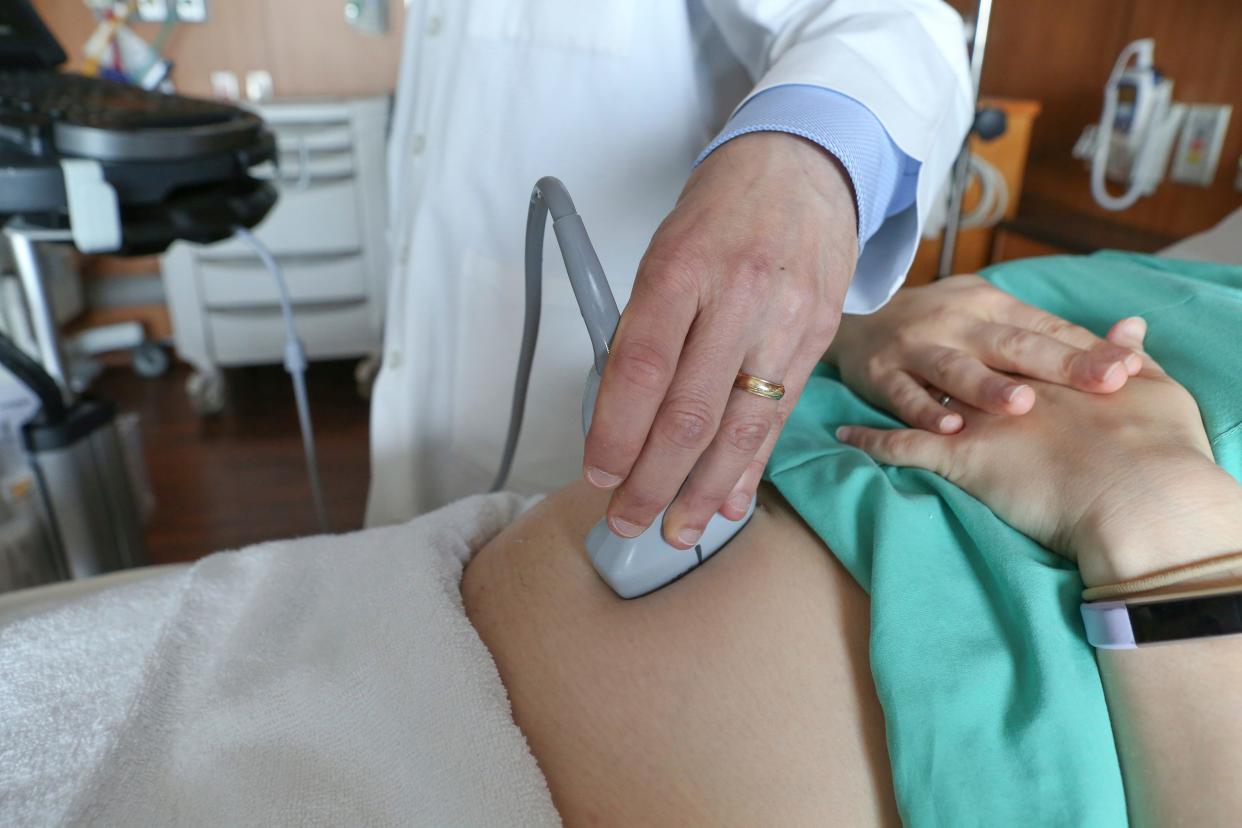Think you'd never seek an abortion? Arizona's draconian laws still could impact you

- Oops!Something went wrong.Please try again later.
Abortion access in Arizona remains a big question mark to be sorted out by the courts.
After the U.S. Supreme Court overturned Roe v. Wade, state Attorney General Mark Brnovich pronounced that an 1864 territorial-era law – which mandates prison on anyone who performs an abortion or procedure that causes a miscarriage, or helps to make it happen – is now in effect.
A Pima County Superior Court judge’s decision on late Friday afternoon affirmed that view.
The post-Roe era in Arizona may get even darker.
Our state Legislature passed a law last year, which the governor signed, that grants citizen status – or personhood status – to fetuses. While a federal judge has granted an injunction blocking the the “personhood law” for fetuses from taking effect, the implications are clear: a woman who elects to end her pregnancy, and anyone who helps her in the effort, may be prosecuted on charges up to murder.
Women who seek abortions could be tracked
And that’s not even taking technology into consideration.
Take your smartphone or wearable electronic device such as a Fitbit, for instance. They track our every move and keep data on our health care decisions, bodily functions and communications. Our cellphone can trace a woman’s menstrual cycles, location, search history, medical conditions, allergies and medications.
'Lost bodily autonomy': Arizona abortion providers enraged by ruling
Very little in our lives is private nowadays because our devices leave digital footprints. And Congress has failed to pass comprehensive privacy legislation that determines what data companies can collect, share and sell. (In fact, your digital information is being sold now without your knowledge, and it’s legal.)
Consider that all of this information is subject to being discovered and turned over to police and prosecutors. In addition, consider that a doctor’s or pharmacist’s records would be subject to a subpoena or search warrant.
So, what child-bearing aged woman is going to be completely honest with her physician when she could be prosecuted for making reproductive health decisions that are right for her and her family?
Black women are more likely to have complications
In a society in which the constitutional protection for an abortion no longer exists, and is criminalized, women are in danger of being placed under suspicion, surveillance, investigated and prosecuted.
And the burden is even greater on women of color. These laws limiting access to abortion has a profound disparate impact on them, particularly Black women.
Black women in the United States already are more likely to die from pregnancy or childbirth than women of any other racial group. Women of color overwhelmingly work at low-income jobs with no health insurance for prenatal and postnatal care and lack choices for effective birth control.
These women, who already are marginalized, are less likely to have the resources to travel to another state to undergo an abortion, thereby sentencing them to bear a child against their will.
What if you have a miscarriage? Or seek IVF?
The impact is not just on people who seek abortion services, but also those who want to be pregnant but experience complications during pregnancy:
If a fetal heartbeat is detected, is it illegal to end a nonviable pregnancy?
Can a woman get proper medical care for a miscarriage, including an abortion, to safely help her body evacuate the pregnancy?
How “at risk” must a woman’s life be before a doctor can provide the proper medical care to help her safely have a miscarriage?
Must she risk infection and hemorrhage or must she already be suffering these conditions before a doctor can intercede during a miscarriage?
What does this mean for infertile couples seeking to have a family through in vitro fertilization? Does the stripping away of the constitutional protection of abortion put it in jeopardy?
Will couples be prosecuted for discarding fertilized embryos, once they have successfully completed their families? Or, must they pay storage fees for fertilized embryos in perpetuity?
Will physicians be subject to prosecution if the implant is unsuccessful?
It's anyone's guess how this will play out
Yes, there are circumstances that may temper the dark scenarios above. The Legislature approved an abortion ban after 15 weeks of pregnancy – although this law, like the 1864 one, makes no exception for rape or incest.
In addition, there is a right to privacy clause in the Arizona Constitution that may protect a woman’s right to make her own reproductive health care decisions. However, the clause has yet to be argued and interpreted by a court in any abortion law challenges.
It has been the federal government and the expansive interpretation of our Constitution by the U.S. Supreme Court that have given me my rights as a woman and Latina. That’s why the overturning of Roe produced distress along with a tremendous amount of fear.
I knew my mother had less rights than I did growing up. I just never expected my daughters would. Because it’s anybody’s guess how all of this will play out.
Barbara Rodriguez Mundell served as a judge in Maricopa County Superior Court for 19 years and was the court’s presiding judge from 2005-10. She is a member of the Board of Contributors for The Arizona Republic. Reach her at barbaramundell@gmail.com.
This article originally appeared on Arizona Republic: Arizona abortion laws raise at least 7 tricky questions for courts

